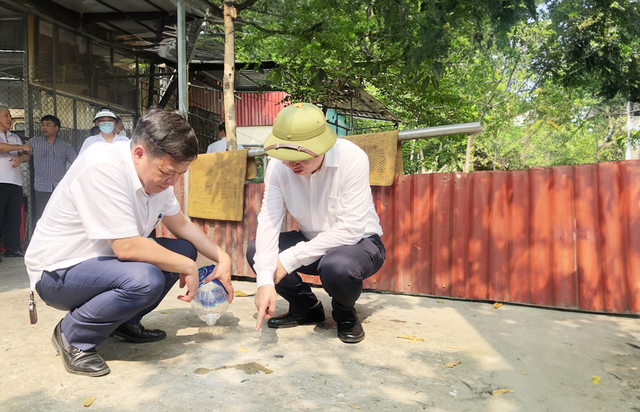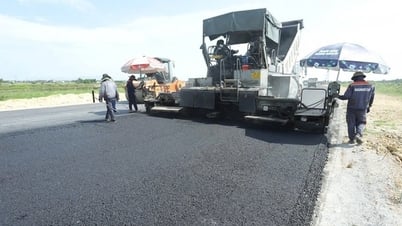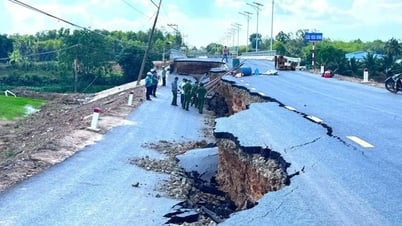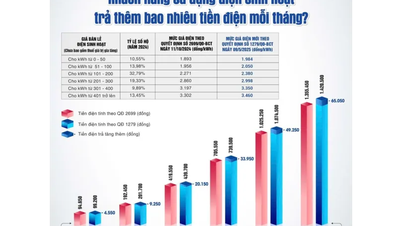On July 21, the WHO warned that the number of dengue fever cases is increasing worldwide and could reach a near-record high this year. This is partly due to global warming, which has created a favorable environment for mosquitoes to breed and thrive.

Local leaders and health officials instruct people to remove stagnant water sources to prevent mosquito breeding.
Dengue fever incidence is on the rise globally, with the number of cases recorded by the WHO having risen to 4.2 million, an eight-fold increase since 2000. This year, dengue cases have surged in Europe, while Peru has declared a state of emergency in most regions.
The WHO has previously warned that dengue is the world's fastest-spreading tropical disease and a "pandemic threat".
"The trend of dengue cases is increasing at a worrying rate, especially in Asian countries such as Malaysia, the Philippines has recorded more than 50,000 cases and more than 20,000 cases are also recorded in Vietnam and Thailand. Asia accounts for about 70% of global dengue cases," said Dr. Raman Velayudhan, an expert at the WHO's tropical disease control department.
At the same time, Mr. Velayudhan also said that about half the world's population is now at risk of the disease. He pointed out that cases reported to WHO reached an all-time high in 2019 with 5.2 million cases in 129 countries. This year, the world is on track to record more than 4 million cases, depending mainly on the Asian monsoon season.
Nearly 3 million cases have been reported in the Americas, he noted, adding that there are concerns about the spread south into Bolivia, Paraguay and Peru. Argentina, which is facing one of its worst dengue outbreaks in recent years, is sterilizing mosquitoes using radiation that alters their DNA.
The WHO says reported cases of the disease, which causes fever and muscle pain, represent only a small fraction of the global total, as most cases are asymptomatic. It kills less than 1% of people.
Warmer climates are believed to help mosquitoes breed faster and facilitate the spread of viruses in their bodies. Mr. Velayudhan cited increased movement of goods and people, urbanization and sanitation issues as other factors behind the increase.
Asked how the heatwave affecting the northern hemisphere would affect the spread of the disease, Mr Velayudhan said it was too early to tell.
"Temperatures above 45 degrees Celsius (113 degrees Fahrenheit) cause more mosquito deaths than reproduction. But mosquitoes are well-adapted insects and can breed in water containers where temperatures do not rise as high," explained Dr. Raman Velayudhan.
Source link


![[Photo] General Secretary To Lam concludes visit to Russia, departs for Belarus](https://vphoto.vietnam.vn/thumb/1200x675/vietnam/resource/IMAGE/2025/5/11/0acf1081a95e4b1d9886c67fdafd95ed)
![[Photo] General Secretary To Lam meets and expresses gratitude to Vietnam's Belarusian friends](https://vphoto.vietnam.vn/thumb/1200x675/vietnam/resource/IMAGE/2025/5/11/c515ee2054c54a87aa8a7cb520f2fa6e)

![[Photo] General Secretary To Lam arrives in Minsk, begins state visit to Belarus](https://vphoto.vietnam.vn/thumb/1200x675/vietnam/resource/IMAGE/2025/5/11/76602f587468437f8b5b7104495f444d)




























![[Photo] National Assembly Chairman Tran Thanh Man attends the Party Congress of the Committee for Culture and Social Affairs](https://vphoto.vietnam.vn/thumb/1200x675/vietnam/resource/IMAGE/2025/5/11/f5ed02beb9404bca998a08b34ef255a6)































































Comment (0)